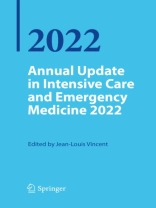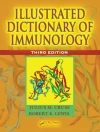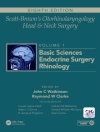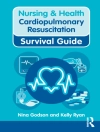The Annual Update compiles reviews of the most recent developments in clinical intensive care and emergency medicine research and practice in one comprehensive book. The chapters are written by well recognized experts in these fields. The book is addressed to everyone involved in intensive care and emergency medicine, anesthesia, surgery, internal medicine, and pediatrics.
Tabela de Conteúdo
Sepsis and the Immune Response.- The role of mitochondria in the immune response in critical illness.- Immunomodulation by tetracyclines in the critically ill: an emerging treatment option?.- Hit early: blocking interleukin-1 in the treatment of COVID-19 pneumonia.- Hemoadsorption therapy during ECMO: emerging evidence.- Respiratory Issues.- The forgotten circulation and transpulmonary pressure gradients.- Oxygen: origin, pathophysiology, and use in the critically ill.- Nebulized therapeutics for COVID-19 pneumonia in critical care.- Mechanical Ventilation.- Positive end-expiratory pressure in invasive and non-invasive ventilation of COVID-19 ARDS.- Personalized mechanical ventilation setting: slow is better!.- Spontaneous breathing in acute respiratory failure.- Laryngeal injury: impact on patients in the acute and chronic phases.- Fluids and Electrolytes.- Fluid responsiveness as a physiologic endpoint to improve successful weaning.- Tidal volume challenge test: expanding possibilities.- Fluid management in COVID-19 ICU patients.- Electrolytes in the ICU.- Renal Failure.- Hemodynamic alterations during continuous renal replacement therapy: is it all about fluid?.- How to prolong filter life during continuous renal replacement therapy?.- Prevention of acute kidney injury after cardiac surgery.- Circulatory Shock.- Contrast enhanced renal ultrasound: an emerging technique for assessment of renal perfusion in critically ill patients.- Focused clinical hemodynamic assessment in septic shock.- Vasopressor choice and timing in vasodilatory shock.- Cardiac arrest.- Advanced life support update.- Brain injury biomarkers for predicting outcome after cardiac arrest.- Neurocritical care and Neuromonitoring.- The emerging role of the microbiota in neurocritical care.- Brain-multiorgan cross-talk in critically ill patients with acute brain injury.- The importance of neuromonitoring in non-brain injured patients.- Artificial intelligence.- Artificial intelligence in critical care medicine.- Artificial intelligence in infection management in the ICU.- Quality of care.- Acute medical rehabilitation in intensive care.- Sepsis performance improvement programs: from evidence towards clinical implementation.
Sobre o autor
Prof. Jean-Louis Vincent is Professor of intensive care medicine at the University of Brussels, and intensivist in the Department of Intensive Care at Erasme University Hospital in Brussels. He is Past-President of the World Federation of Societies of Intensive and Critical Care Medicine (WFSICCM), the European Society of Intensive Care Medicine (ESICM), the Belgian Society of Intensive Care Medicine (SIZ), the European Shock Society (ESS), and the International Sepsis Forum (ISF). He is a member of the Royal Academy of Medicine of Belgium.
Prof. Vincent has signed more than 1000 articles, 400 book chapters and review articles, and 1000 original abstracts, and has edited more than 100 books. His H-index is 190. He is co-editor of the Textbook of Critical Care (Elsevier Saunders) and the “Encyclopedia of Intensive Care Medicine” (Springer). He is editor-in-chief of ‘Critical Care’, ‘Current Opinion in Critical Care’, and ‘ICU Management & Practice’ and member of the editorial boards of about 30 journals. Prof Vincent has received several awards, including the Distinguished Investigator and Lifetime Achievement Awards of the Society of Critical Care Medicine, the College Medalist Award of the American College of Chest Physicians, the Society Medal (lifetime award) of the European Society of Intensive Care Medicine, Presidential Award of the European Respiratory Society, and the prestigious Belgian scientific award of the FRS-FNRS. In recognition of these achievements, he was awarded the title of Baron by the King of Belgium.












